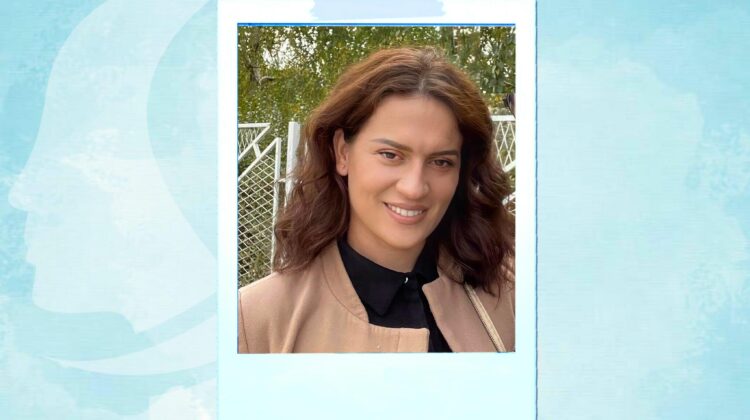The courage to deal with the past

by Jeta Krasniqi
Dealing with the past is not an easy topic. Many times one feels like walking over eggs trying to break as few as possible. The conversation is often filled with emotions, recounts of committed atrocities and feeling of discontent for the denied justice. But it is also a conversation still very much politicized, at times even containing nationalistic notes.
The wars in the former Yugoslavia ended yet societies continue to live within their own narratives. There were no formal apologies made. Neither any acceptable nor recognition of responsibility for the committed crimes. Indeed, there were a few efforts made at promoting and inciting reconciliation in Kosovo yet dealing with the past has always been regarded as opening the Pandora box due to the different narratives which continue to persist within our societies.
The persisting stark difference of narratives from different sides leaves one wondering if we have lived the same war while also raising the question on what is the best way to go about in initiating the conversation of the past. Should this be a state-sponsored undertaking or can it be solely a societal initiative regardless of the will of state institutions to participate or not?
Attempts to establish regional mechanisms which would address the issue of dealing with the past were made, such as RECOM, the regional commission for the establishment of facts about war crimes and other serious violations of human rights committed in the former Yugoslavia from January 1, 1991 until December 31, 2001. This initiative was able to gain support from citizens from all the region yet the lack of political will showed its limits.
On the other hand, there has been an internal initiative in Kosovo undertaken by the former President Hashim Thaçi to establish a Truth and Reconciliation Commission (TRC) of Kosovo with the overarching objective of reconciling communities within Kosovo. A preparatory team of experts have invested much efforts to define the mandate of Kosovo TRC yet the underlining question remains to what extend can Kosovo promote internal reconciliation when there is no political willingness from the other side namely Serbia to join the conversation – as the main protagonist of the Kosovo war.
In addition, the international and national courts entitled to deal with war related crimes, have done little to promote reconciliation, address the dealing with the past notion or even offer a sense of justice to the victims and their loved one. The latter due to a few reasons which are also related to the lack of willingness to persecute the perpetrators and the paucity of cases brought in front of justice.
Nevertheless, the lack of political will does not exonerate civil society organization and youth groups from finding avenues for initiatives and bold steps in addressing the challenging topic of dealing with the past. They have a responsibility to take the hard path towards finding the truth. When there is no willingness by the state than the pressure should come from the society.
It has been a few years now that I lecture young feminists participating at the Feminist Spring School for Kosovo and Serbia organized by Artpolis and ACD. l lecture them on the topic of dealing with the past and conflict-related sexual violence. The young girls are from Kosovo and Serbia and as they spend time together getting to know one another, they unite to create a common vision for the feminist movement in Kosovo and Serbia.
As I start the conversation on sexual violence used as a tool of war in the former Yugoslav wars, offering figures and facts from the different countries, I feel the air in the room change. I share with them stories of women survivors I have met myself and women survivors who have testified in front of the ICTY for the sexual abuses they were subjected to. I see tears building up in their eyes as I go on talking about the manifold consequences survivors of sexual violence have to go through, faced not only with the horrendous inhuman crimes but also with the social prejudices and the lack of appropriate support.
I share with them the Conceptual Framework on Dealing with the Past which was developed by swisspeace and the Swiss Federal Department of Foreign Affairs. The framework is based on the set of principles recommended by the UN Special Rapporteur Louis Joinet and approved by the UN Human Rights Commission in 1994. The principles centered around four pillars or areas: the right to know, the right to justice, the right to reparations and the guarantee of non-recurrence talk about a holistic approach of dealing with the past, considering the DwP a long-term process which aims to establish a culture of accountability, the rule of law and reconciliation.
As I was once asked when introduced with this framework, I ask them to choose only one of the areas recognizing that all areas influence and depend on each other. It is always difficult to choose only one. As it is the right of the victims, their family members to know what has happened to their loved ones. To have remembrance, acknowledgment, apology, recognition for the atrocities they were subjected to, to have justice and the assurances that what happened to them will not be repeated again.
Victims have names, as do perpetrators. I ask the young feminists from Kosovo and Serbia not to regard the crimes through the glance of their ethnic belonging or political affiliation rather through the spectrum of human rights violations which must be condemned and for which responsibility must be taken.
As I argue with them, we should side with the right of victims for justice, their right for truth, their right for reparation and for the guarantees of non-recurrence. I argue that we should side with condemning the committed atrocities no matter who perpetrated them.
Dealing with the past is the other side of the same coin of sustainable peace and reconciliation. I believe that the young people should not carry the weight of the past upon their shoulders. The weight which divides them and projects them as adversaries. In the contrary much effort should be placed at empowering them in promoting reconciliation, in building bridges between the societies and communities torn by the war. Civil society across the border has a crucial role to play to promote not only reconciliation but also to push for the political will which is very much needed to properly address dealing with the past and take responsibility for the committed crimes.
“This op-ed article is made possible by the support of YIHR KS as the implementing partner of United States Agency for International Development (USAID). The content of this op-ed article is the sole responsibility of the REC – Reconciliation Empowering Communities and D&G Solutions and does not necessarily reflect the views of the United States Agency for International Development – USAID, the US Government or the Youth Initiative for Human Rights (YIHR KS)”







